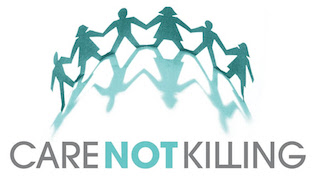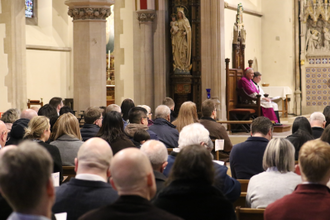Care Not Killing disappointed at latest legal challenge to Suicide Act

Care Not Killing is disappointed at the latest and unnecessary legal challenge to the Suicide Act by the campaigner Paul Lamb.
Mr Lamb who was paralysed in a road accident nearly three decades years ago is again seeking permission for a doctor to assisted him in ending his life. He has previously argued that a blanket ban on assisted suicide and euthanasia is a breach of his human rights - However, these arguments have been rejected by the Courts.
Judges concluded that Article 8 of the Human Rights Act 1998 (Right to respect for private life) is not unlimited, but a qualified right and did not extend to compelling the State and doctors to provide the lethal cocktail of barbiturates to kill himself or to be killed.
The Courts also made clear that changing the law is a matter for Parliament.
British Parliaments have looked at this issue a dozen times since 2003. Most recently MPs were asked in 2015 to look at the current law in the Marris Bill and comprehensively rejected changing the legislation by 330 to 118.
Dr Gordon MacDonald, Chief Executive of Care Not Killing, commented: "We are disappointed that yet another unnecessary legal challenge is being brought. There have been numerous attempts to legalise assisted suicide and euthanasia through the Courts, all of which have failed, because the judges recognise the limitation of Article 8 and 14 of the European Convention of Human Rights. They also said this is a matter for parliamentarians, who have looked at the legislation in detail and rejected weakening our current laws.
"At the heart of this latest legal challenge is an attempt to treat the terminally ill, and those with chronic conditions differently in law by removing important and universal legal protections.
"According to the Kings Fund, there about 15 million people in England, who have a long-term or chronic condition for which there is currently no cure and which are managed with drugs and other treatment, for example diabetes, arthritis and hypertension.
"The Courts and Parliament have previously recognised any change to the law would put pressure, real or imaged, on vulnerable people to end their lives, because of fears of being a burden upon relatives, carers or on the NHS which is short of resources.
"These are not imagined fears as we only have to look at what is happening in the tiny number of places that have legalised assisted suicide or euthanasia. Places like Oregon and Washington where a majority of those ending their lives cite fear of becoming a burden as the reason for their decision.
"Or Canada, which has seen a five-fold increase in the number of people ending their lives since they changed their law in 2016. At the same time, there have been cases where those requiring expensive care have seen this cut or refused, but have been offered the drugs to kill themselves. Cases like Roger Foley from Ontario who suffers from a neurological disease. He secretly taped hospital staff offering him a 'medically assisted death', despite his repeated requests to live at home.
"The safest law is the one we currently have, which gives a blanket prohibition on assisted suicide and euthanasia. This deters exploitation and abuse through the penalties that it holds in reserve, but at the same time gives some discretion to prosecutors and judges to temper justice with mercy in hard cases. It does not need changing"
Care Not Killing is a UK-based alliance bringing together organisations spanning disability rights, healthcare and faith groups, and thousands of concerned individuals. It has three key aims: to promote more and better palliative care; to ensure that existing laws against euthanasia and assisted suicide are not weakened or repealed; and to inform public opinion further against any weakening of the law.
Read more about Care Not Killing: www.carenotkilling.org.uk


















